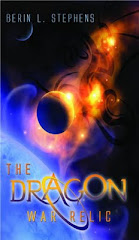Part VII: POW,
Right in the Kisser, Part 2
Last week, we
covered a few plays on words like malaprops, reforming, and
oxymorons. This week, we'll go over puns, double entendres, and
clichés.
Some writers feel
that puns are the lowest form of humor and that they shouldn't be
used. I feel, though, that if you outlaw puns, only outlaws will have
puns. Yes, it's okay to groan. In fact, that's usually the best
result you can hope for. If you want to avoid puns because of this,
that's fine. Personally, I like puns. You definitely don't want to
use them a lot, but they can be useful in our desire to create an
atmosphere of funny.
Just a couple of
weeks ago, there was one that happened on Duck Dynasty that I think
accomplished the desired goal of adding to the comedic atmosphere
without distracting from it. In the episode, one brother, Jace, was
making a duck blind that looked like a cow. The other brother, Willy,
comes in and says, “This is udderly stupid.”
Sometimes these
plays on words overlap in definition. For instance, Willy's statement
above could also be considered a double entendre, where we use a word
or phrase that can have two meanings. Most of the time, though,
double entendres are used to disguise sex jokes. Even if that's not
the humor we want to use, double entendres can be a clean and useful
tool. Here are a few examples of malaprops from newspaper articles
that are also unintended double entendres:
Miners refuse to
work after death.
New obesity study
looks for larger test group.
Children make
delicious snacks.
In our writing
and English classes, we've been taught to avoid clichés. Well, for
comedy writing, I disagree. Cliches are gold mines for comedy
writers. Why? Because they have audience expectations built into
them. We just have to make sure that before it's over, we've twisted
it into an unexpected outcome. A simple example comes from Back to
the Future, where the bully, Biff, says after the principle
arrives, “Let's make like a tree and get out of here.”
Tropes are
another form of cliché that often are used as short cuts for
explanations. These are used a lot in the genre I write; fantasy. For
instance, all you have to do is say 'elf' and the fantasy reader
automatically thinks of these tall, sleek warriors with excellent
woodcraft and archery skills. In my book, Dragon War Relic, I
realized how cliché and overused that was. I also realized that
before Tolkien, elves were short little creatures full of mischief.
Even the Santa Claus elves were watered down. I decided to go back to
the traditional elf for my three elf characters as a way to poke fun
at the Tolkien version. My elves are ornery, huge Star Trek fans
(naming themselves Kerk, Sprock, and Bob), and they have Tolkien-elf
envy.
I'm not sure what
we'll explore next week yet. If you have any suggestions for topics
you'd be interested in, let me know. Until then, remember, comedy
saves lives.
